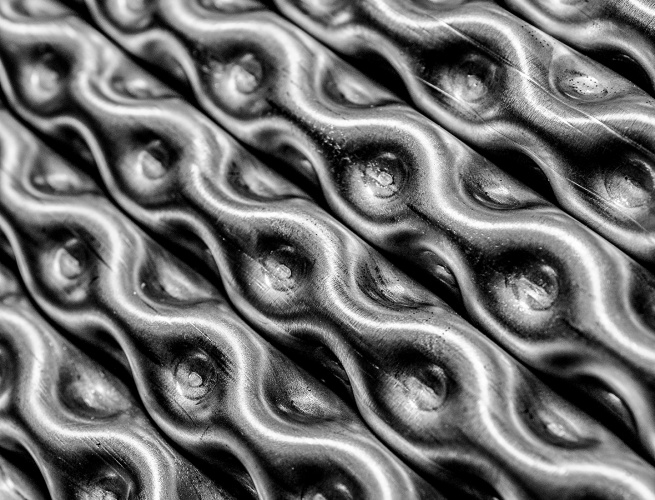
One of our recent innovations is the ERK Tube technology. Induced turbulences in the working media allows weight and volume reductions for boilers and heat exchangers of up to 50%. Additionally, the induced turbulences reduce particles and dust settling on the tube walls, thus significantly reducing fouling. We design according to the following four criteria: compact, light, low cost, and optimised fouling.
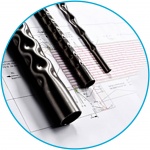 | ERK holds multiple patents on the ERK Tube Technology covering various applications, designs and manufacturing processes. |
Over the past few years, we have realised, in partnership with our licensees, more than 1070 ERK Tube units in stationary and marine applications. The applications spread across multiple industries, including energy, oil and gas, chemical, food and the marine industry. Currently, we are expanding into other industries, such as automotive and aviation.
Power
| Chemicals
| ||
Industry
| Naval / Marine
|
The manufacturing of ERK Tubes is not restricted to a single material or particular geometry. We can produce any kind of ductile material such as steel, different types of stainless steel, aluminium, copper and copper alloys, titanium and tantalum. Various dimple structures have been designed, produced and thoroughly tested.
.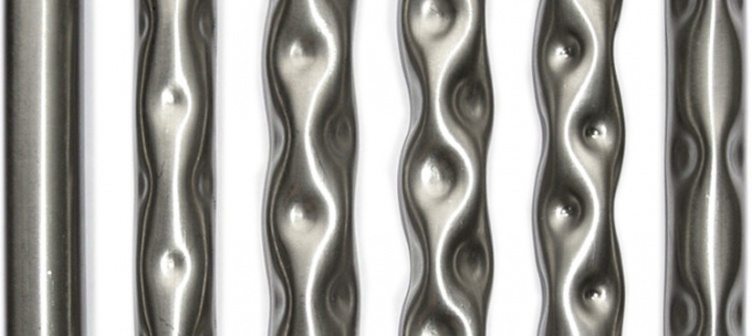
.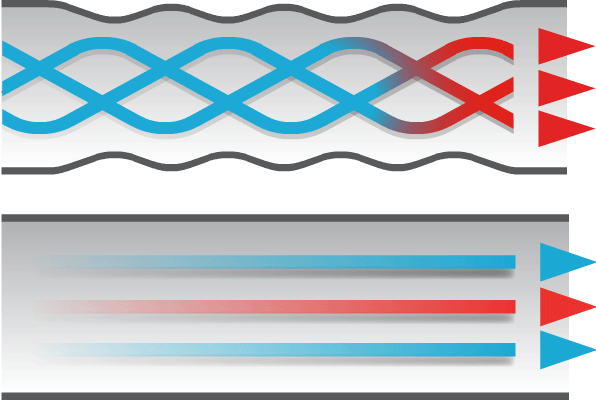
The structure has an effect on the fluid dynamics. The dimples on the tube affect the boundary layers in such a way that tangential and radial mixing motions occur. As a result, a turbulent flow arises early on inside and outside the tube, causing the heat transfer to increase.
Due to their structured surfaces, ERK Tubes have a relatively low resistance to thermal-related expansion compared with plain tubes and possess special strength properties.
Particles that are present within the media settle at a much lower rate on the tube walls because a significant proportion is carried away by the turbulent flow, thus allowing longer operational cycles, less maintenance, significantly less cleaning and less downtime.
.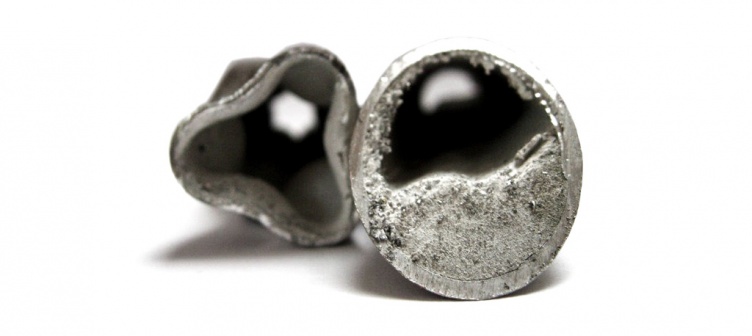
ERK Tubes have up to 50% lower volume and weight with identical capacity. At equal volume they allow up to 30% higher thermal capacity.
